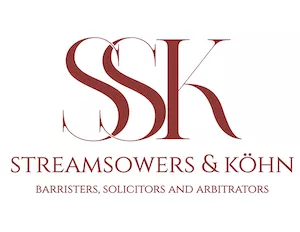- within Antitrust/Competition Law topic(s)
- with readers working within the Law Firm industries
- within Tax, Employment and HR and Insurance topic(s)
In this series of questions and answers, I provide an in-depth overview of the competition aspects of the merger control process under the ECOWAS Competition Framework.
1. What is the main legislation governing mergers and the relevant merger control authority?
Several legislative instruments form the basis of the ECOWAS competition framework, including its provisions on merger control. One of the key instruments is Supplementary Act A/SA.1/12/08 Adopting Community Competition Rules and the Modalities of their Application Within ECOWAS (the 'Supplementary Act A/SA.1/12/08'). Article 4(1) of the Supplementary ActA/SA.1/12/08 provides that it applies to agreements, practices, mergers, and distortions caused by Member States that are likely to affect trade within ECOWAS.
Regarding mergers and acquisitions, article 7(1) of the Supplementary Act A/SA.1/12/08 stipulates that every merger, takeover, joint venture, or other acquisition or business combination, including interconnected directorships—whether of a horizontal, vertical, or conglomerate nature between or among enterprises—is prohibited if the resultant market share in the ECOWAS Common Market, or any significant part thereof, attributable to any good, service, line of commerce, or activity affecting commerce, results in an abuse of a dominant market position, leading to a substantial reduction in competition.
Furthermore, Supplementary Act A/SA.2/12/08 Establishment, Functions and Operations of the ECOWAS Regional Competition Authority (the 'Supplementary Act A/SA.2/12/08'), establishes the ECOWAS Regional Competition Authority ('ERCA'). ERCA is located in Banjul in The Gambia. Article 4(2) of this Act charges ERCA with the responsibility of reviewing applications for authorisations of mergers, acquisitions, or business combinations that meet the jurisdictional threshold for notification, as may be prescribed by ERCA.
2. Do the National Competition Laws of ECOWAS Member States apply to mergers and acquisitions with a regional dimension?
No. National competition laws do not apply to mergers and acquisitions with cross-border effects because these laws lack extraterritorial jurisdiction. In other words, the application of national competition laws is confined within the territorial boundaries of the country, and they do not extend to transactions or activities that occur beyond its borders.
3. What is the scope of the ECOWAS merger control regime?
The ECOWAS merger control regime applies to mergers and acquisitions involving undertakings that operate in at least two ECOWAS member states.
In cases where the acquiring undertaking operates outside the ECOWAS region, the target undertaking must have operations in at least two ECOWAS member states. Notably, operations in this context do not require a physical presence but must establish a substantial nexus to the region. This nexus may be evidenced by the production, supply, distribution, or purchase of goods and services within the ECOWAS Community.
4. How is a merger defined under the ECOWAS Competition Framework?
Article 1 Manual of Threshold for Mergers and Acquisitions and Threshold Indicating a Dominant and Monopolistic Position (the 'Manual of Thresholds') issued by ERCA defines a merger as:
the acquisition of control or other business combinations, takeover, joint venture or other acquisition or business combinations, including interconnected directorships whether of a vertical, horizontal or conglomerate nature between or among enterprises
Article (1) (i) of the Supplementary Act A/SA.1/12/08 defines 'control'in relation to a company as the ability of an individual or legal entity to secure control through:
- The holding of shares or the possession of voting power in relation to that company; or
- Any other power conferred by the company's constituent documents or other documents regulating the company; or
- The effective exercise of power of decision within the company, so that the company's business is conducted in accordance with that individual's wishes.
5. What is the jurisdictional threshold for merger notification?
In accordance with article 5 of the Manual of Thresholds, a merger taking place within the ECOWAS Common Market must be notified to ERCA if, in the financial year preceding the merger or acquisition:
- The combined aggregate turnover or the relevant balance sheet item, whichever is higher, of the merging entities within the Common Market exceeds 20 million Units of Account (UA 20 million); or alternatively
- The aggregate Common Market-wide turnover or relevant balance sheet item, whichever is higher, of at least two of the entities involved in the merger or acquisition exceeds 5 million Units of Account (UA 5 million).
According to article 6 of the Manual of Thresholds, turnover is to be calculated based on the aggregate turnover generated by the merging parties in the financial year preceding the merger. This figure reflects the total revenue derived from the sale of goods and the provision of services that fall within the ordinary course of the enterprises' activities.
6. What is the procedure for notifying a merger?
The complete notification must be submitted to the ERCA registry using the prescribed merger notification form, accompanied by the required supporting documentation. At a minimum, this documentation should include the following details: the names of the applicant companies, their physical addresses, email addresses, and telephone numbers; the full identities of the companies' directors; the amount of share capital; balance sheets, turnover, and profit and loss accounts; market share data; and proof of payment of the applicable fees.
7. What are the applicable fees?
The merger application fee is calculated at 0.1% of the combined turnover or the combined value of the assets of the companies within the ECOWAS community, whichever is higher. This fee is payable to ERCA and is non-refundable.
8. What is the substantive test applied by the merger control authority in merger reviews?
The substantive test applied by ERCA in assessing a merger is whether the transaction would result in an abuse of a dominant position, leading to a substantial reduction in competition within the Common Market.
9. How are mergers assessed by ERCA?
ERCA conducts its merger assessments in two phases, as outlined below:
Phase 1:
- Upon receipt of the duly completed merger notification form, accompanied by all relevant supporting documentation, ERCA will conduct a preliminary analysis to determine whether the merger or acquisition raises any competition concerns.
- If competition concerns are identified, the Executive Director (ED) of ERCA will refer the matter to the ERCA Council, which may instruct ERCA to undertake a more in-depth Phase 2 assessment.
- Pending the conclusion of its investigation, the ERCA Council may impose an injunction on the transaction if it determines that the parties are likely to take actions that could cause serious and irreparable harm, affecting its ability to impose remedies after the investigation.
- A Phase 1 investigation is expected to be completed within 30 calendar days (including Saturdays and Sundays)
Phase 2:
- Following the ERCA Council's instruction to proceed with a Phase 2 assessment, the ED will direct the Director of Investigation and Law Enforcement (DILE) to form a Phase 2 case team to conduct a more detailed assessment of the merger notification.
- Upon completing the Phase 2 assessment, the DILE will make a recommendation, based on the case manager's conclusions, to the ED. The ED will then review, finalise, and submit their recommendation to the ERCA Council.
- The Phase 2 investigation is expected to be completed within 30 calendar days (including Saturdays and Sundays)
After receiving the ED's recommendation, the ERCA Council may take any of the following actions:
- Approve the merger or acquisition, with or without conditions;
- Reject the merger or acquisition by issuing a reasoned decision.
Notwithstanding, the ERCA Council may approve an anti-competitive merger or one that substantially lessens competition within the ECOWAS Community if it determines— either at the request of the merging parties or on its own initiative—that the transaction serves a compelling public interest.
In deciding whether to exempt an otherwise anti-competitive merger on public interest grounds, the ERCA Council must be satisfied that a clear and demonstrable public interest exists, or that the merger would confer significant benefits on the ECOWAS Community. Additionally, the Council may consider any special representations made by a national competition authority within the Community as part of its deliberations.
10. What is the process for the judicial review of the ERCA decisions
Decisions made by the ERCA Council regarding a merger or acquisition are subject to appeal before the ECOWAS Court of Justice located in Abuja, Nigeria. Any such appeal must be filed within 30 calendar days of receiving the ERCA Council's decision. Rulings by the ECOWAS Court of Justice concerning ERCA's decisions shall be final and binding on all parties involved.
11. Are the parties free to elect to implement a merger before approval is granted by ERCA?
No, all qualifying mergers must be notified to ERCA. Failure to do so will subject the merging parties to financial penalties imposed by the ERCA Council.
12. What are the consequences of not notifying a merger with ERCA?
Parties to a merger who fail to notify or implement a qualifying merger without obtaining prior approval from the ERCA shall be liable to a penalty of UA 500,000 for each working day the non-compliance continues.
Conclusion
Since the enactment of the legislative instruments that form the basis of the ECOWAS Competition Framework and the establishment of ERCA in 2008, regional competition enforcement activity has been very minimal. Notably, until recently, it was unclear how qualifying mergers were to be notified, as the ERCA Council—responsible for reviewing and making recommendations on mergers assessed by the ED—had not been constituted.
However, with the recent constitution and swearingin of the ERCA Council members on 2nd October 2024, parties involved in qualifying mergers can now expect that notifications submitted to ERCA will proceed to conclusion within the ECOWAS Competition Framework including those that were notified prior to the constitution of the ERCA Council. Moving forward, the enforcement of qualifying mergers implemented without the approval of ERCA and the penalties associated with non-compliance are likely to be a key enforcement priority for ERCA, signaling an active phase of regional competition regulation within the ECOWAS Community. With the establishment of the ERCA Council, it is anticipated that the ECOWAS Competition Framework will undergo further review to address certain deficiencies arising from inelegant drafting. This process will eliminate any potential for ambiguous interpretation of provisions and to align the framework with best practices from other competition jurisdictions.
Additionally, a cooperation agreement is currently being developed between ECOWAS and the Union Economique et Monétaire Ouest Africaine (UEMOA) to create a one-stop-shop for notifying qualifying mergers that meet the jurisdictional thresholds of both regional economic communities. While discussions have yet to progress beyond the technical stage, it is anticipated that further developments on this front will take place in the near future, enhancing the merger control process across the region.
The content of this article is intended to provide a general guide to the subject matter. Specialist advice should be sought about your specific circumstances.


